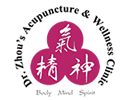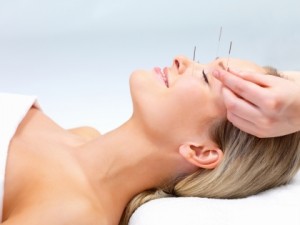Traditional Chinese Medicine and Acupuncture
Acupuncture is an ancient healing art originating from China over 5,000 years ago. In ancient times, Chinese people learned that sharpened metal could relieve pain. After years of experimentation, it was discovered that certain points can be connected and related to certain disease. That is how acupuncture points and meridian was discovered.
Chinese medicine is quite complex and can be difficult for some people to comprehend. This is because TCM is based, at least in part, on the Daoist belief that we live in a universe in which everything is interconnected. What happens to one part of the body affects every other part of the body. The mind and body are not viewed separately, but as part of an energetic system. Similarly, organs and organ systems are viewed as interconnected structures that work together to keep the body functioning.
Today, a meridian – the energy channel where Chi flows, can be detected through the use of technology. A meridian has 12 standard and 8 extra channels on both side of the body, no matter what your age or race is, the map of energy flow is the same. The meridian system can only be found in living people. Once people die, the meridian ceases to exist.
Many people often equate the practice of acupuncture with the practice of traditional Chinese medicine. This is not entirely true. While acupuncture is the most often practiced component of traditional Chinese medicine, it is simply that – a component, an important piece of a much larger puzzle. Traditional Chinese medicine encompasses several methods designed to help patients achieve and maintain health. Along with acupuncture, TCM incorporates adjunctive techniques such as acupressure and moxibustion; manipulative and massage techniques such as tuina and gua sha; herbal medicine; diet and lifestyle changes; meditation; and exercise (often in the form of qigong or tai chi).
Traditional Chinese medicine should not also be confused with “Oriental medicine.” Whereas traditional Chinese medicine is considered a standardized version of the type of Chinese medicine practice before the Chinese Revolution, Oriental medicine is a catch-all phrase for the styles of acupuncture, herbal medicine, massage and exercise that have been developed and practice not only in Asia, but world-wide.
Acupuncture Terminology and Modalities:
Listed below are some of the most well-known concepts in traditional Chinese medicine, along with information on TCM and acupuncture schools, titles and organizations. Clicking on a term will direct you to a new page with information on that particular subject.

